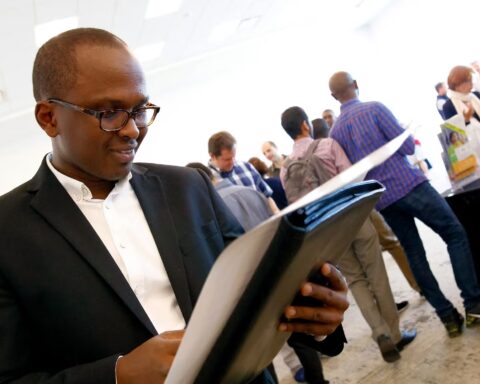Canada is a multicultural country, but has a policy of bilingualism. So, what happens to the scores of languages that make up Canada’s multicultural fabric? Can we divorce the languages spoken by immigrants from the cultures that they are expected to foster in their new land?
Few people have as much authority on the subject of bilingualism as Graham Fraser, the Commissioner of Official Languages, a former national affairs writer for the Toronto Star and author of Sorry, I Don’t Speak French. It’s a highly recommended critique of Canada’s language policies going back to the 19th century, and, of course, I read it because I am interested in how immigrants (Allophones) should be relating to the twinning of English and French across Canada.
Mr. Fraser is among the first to admit that three decades of bilingualism has not stopped Canada from being a marriage of two solitudes. English and French-speaking parts of the country remain as far apart as ever. He quotes Prime Minister Stephen Harper as saying, “Quebec is more French, the rest of the country is more English today, than at any time in our history.”
In another place, Mr. Harper says, “In the case of Quebec, and in the case of Canada, as we know, the Trudeau bilingualism policies continued by future governments – including my own – won’t change the actual usage of the French or English language in parts of the country as a social or economic reality.”
So, what’s the point? In Mr. Fraser’s words, any language policy is designed to serve two objectives – sustain a language, and enable others to communicate with that society. On that score, the author confirms that the policy of bilingualism has been a success. Irrespective of where you are in Canada, there is a reasonable likelihood that you can receive services in either English or French.
It’s not my place to get into the intricacies of this policy, but there are two assertions that Mr. Fraser makes in his book that relate directly to immigrants. First, he claims that “[D]espite the widely held view to the contrary, language requirements are no more of a barrier for visible minorities than for anyone else.” Second, he insists that “[T]here are many indications that Canada’s multicultural communities have embraced bilingualism.”
I would argue that both these claims are open to question. In a conversation, Mr. Fraser clarifies that his observation about barriers comes from a government study – based on interviews with immigrant public servants. Essentially, the study found that visible minorities have as much luck at passing the French language tests as Anglophones who have lived in Canada all their lives. That finding does not come as a surprise (given the advantages that immigrants have in terms of learning a third language), but it would be unwise to then suggest that new immigrants face no language barriers when trying to enter the public service.
Mr. Fraser cites the support of specific Chinese communities in Vancouver and Toronto for French-language education as evidence of the acceptance of bilingualism among immigrants. While these may be anecdotally true, most immigrants, I think, will agree with Preston Manning when he argues in the book that it would be wiser for Canadian children to learn Chinese instead of French.
The difference is that while much of mainstream Canada accepts English and French as co-equal languages, new Canadians have a hard time reconciling multiculturalism with bilingualism. While Mr. Fraser sees the equal acceptance of English and French as a precursor to multiculturalism, immigrants tend to see an inherent contradiction. There’s no easy way to square this circle.




